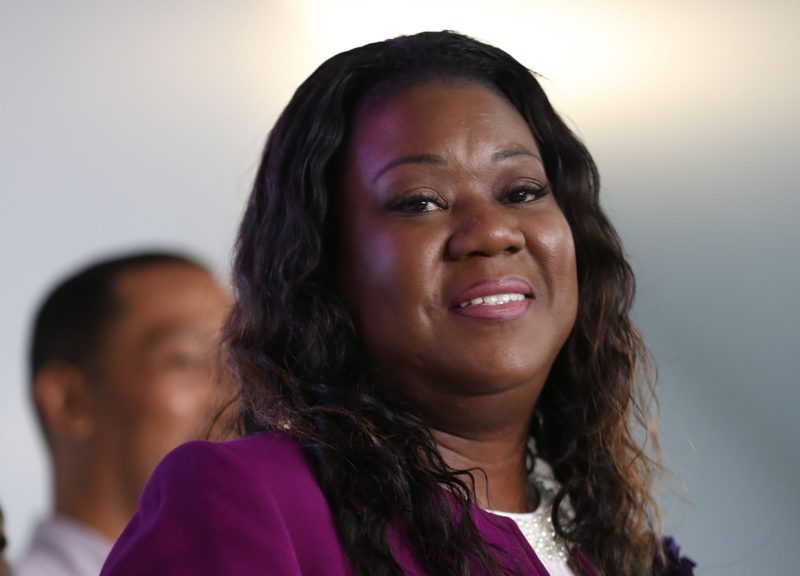Trayvon Martin’s mother: ‘Don’t give up’ fight for justice
Share
Explore Our Galleries
Breaking News!
Today's news and culture by Black and other reporters in the Black and mainstream media.
Ways to Support ABHM?
By Associated Press
“Today is a bittersweet day,” Sybrina Fulton said on the 10th anniversary of her son’s death, which made the 17-year-old a symbol of the Black Lives Matter movement

The mother of Trayvon Martin used the 10th anniversary of her son’s death Saturday to urge those who sought justice for her family to continue to fight.
“I never do anything on the 26th, I never even plan anything on the 26th of February,” Sybrina Fulton said at the weekly meeting of the National Action Network, the civil rights organization founded by the Rev. Al Sharpton in Harlem.
She told an audience that included Sharpton and Mayor Eric Adams that she wanted to be there to support her supporters. Adams, a New York state senator at the time, was among several Black lawmakers who wore hooded sweatshirts to a 2012 legislative session to call attention to the 17-year-old’s death in Sanford, Florida.
Trayvon Martin had been wearing a similar sweatshirt when he was fatally shot on his way back from a store while visiting his father in a gated community in the Orlando suburb. George Zimmerman, a member of the community’s neighborhood watch, confronted the teenager and shot him after reporting him to authorities as a suspicious person.
Keep reading to learn more about the fight for racial justice over the last decade.
Many believe racism contributed to Zimmerman’s trial results. Martin’s death was just one in a long history of anti-black violence.
Get more Black identity and culture news.









Comments Are Welcome
Note: We moderate submissions in order to create a space for meaningful dialogue, a space where museum visitors – adults and youth –– can exchange informed, thoughtful, and relevant comments that add value to our exhibits.
Racial slurs, personal attacks, obscenity, profanity, and SHOUTING do not meet the above standard. Such comments are posted in the exhibit Hateful Speech. Commercial promotions, impersonations, and incoherent comments likewise fail to meet our goals, so will not be posted. Submissions longer than 120 words will be shortened.
See our full Comments Policy here.